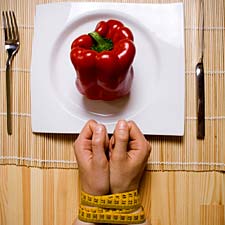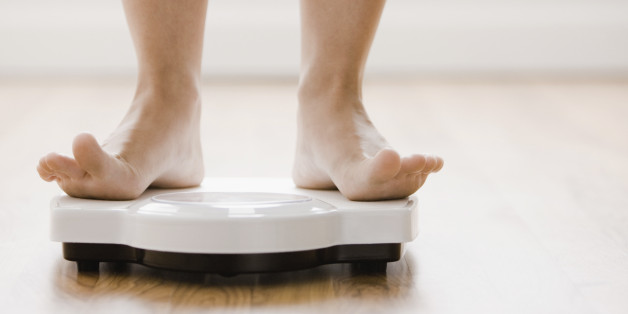Water
Water, the most essential liquid of all body fluids, is perhaps second only to oxygen in terms of importance. It comprises 75% of our muscles and 90% of our blood. It’s so important that you couldn’t survive more than a few days without it.
Despite the importance of water, most people don’t get enough of it. In fact, Americans only get about 1/3 of the water they need!! This results in such problems as fatigue, constipation, dull skin tone, poor digestion, a reduced ability to concentrate, just to list a few. When the body doesn’t get enough water, muscle tissue begins to stick together and joint movement is restricted. Dehydration can also seriously affect blood pressure, circulation and kidney function.
Water is a forgotten nutrient and it is crucial to every function in the body. Every system in the body relies on water to run smoothly. Water transports nutrients and oxygen to cells, aids in food digestion, regulates body temperature, aids in circulation, metabolism, and removes waste and toxins from the body. Without proper hydration, the body is exposed to a variety of health risks. New research shows that a decrease in water may cause the body’s fat deposits to increase.
Another side effect of hidden thirst is that you may think you are hungry when you are actually thirsty. Drinking water throughout the day keeps your stomach feeling full and reduces the desire to eat.
Water is crucial to any fitness or weight-loss regimen. When you exercise, water helps your body convert excess fat to energy and helps your kidneys flush out waste products from the extra fat and calories you burn. If you’re
trying to cut back on calories, drinking water before and during each meal can help you eat less. Water takes up space in your stomach, leaving less room for extra food and making you feel full quicker so that you’ll eat less.
You do not have to perspire profusely to lose water. You are losing it all the time. Alcohol and caffeine (both diuretics) also increase the body’s fluid loss. Water constitutes about 90% of your blood, 75% of your brain and muscles, 25% of body fat and 22% of bone. Males have a higher percentage of body water on average than females because they tend to have less body fat. While thirst signals the body’s need for fluid, slight dehydration has already occurred by the time a person becomes thirsty. It only takes a loss of 1-2% of the body’s total water content to cause dehydration. On average, you lose 10 cups of water a day and get only 4 back from your food. Each day a person will lose a minimum of 400ml (1.5 cups) of water through breathing, 400ml. through the skin, and 1,000 ml. (4 cups) through the kidneys. This is the minimum. So if you’re active, you’ll lose more.
The amount of water inside a cell, known as the cellular hydration state, can change within minutes. When you begin to lose as little as 1% of your body weight in water, your ability to regulate heat begins to be impaired. If you lose 7% of your body weight in water, you are likely to collapse when exercising in heat. If you dehydrate a muscle by as little as 3%, you can cause a loss in contractile strength of about 10% as well as a 12% loss in speed.
According to the American Dietetic Association, the daily requirement is not 8 glasses of water a day; it’s eight 8 oz. servings at sea level. At a higher altitude this should be increased to ten 8 oz. servings. However, those 8 cups are just a guideline. For instance, you should add a cup: if you exercise, live in a warm climate, or drink more than 2 cups of coffee or alcohol a day. Air travel and working in a climate controlled office requires an additional 1-2 cups. While some fruits and vegetables are as much as 95% water, these can not be included in your daily intake, because the 8 cups was calculated assuming you eat plenty of fruits and vegetables. Fully re-hydrating the body doesn’t occur as fast as you might think. Even after consuming large amounts of water, your dehydrated body can take from a few hours to a day or more to completely re-hydrate.
Tissues such as the muscle and skin, which are predominately water, take the longest to recover from dehydration. A good sign of hydration is if you urinate every 2-4 hours and your urine is clear or light in color. Most people take water for granted, not realizing how desperately their bodies crave it. Don’t wait until the tap runs dry to realize how important water is. Start today replenishing your body and begin to reap its many rewards.
-
How to make quick weight loss diets work
While they do work, they have to be used properly in order to yield ma
-
Carbs and Dairy: Is It Really Safe to Skip Them?
As a child, I was taught that my meals needed to come from 4 simple fo
-
Lose Weight By Following These Guidelines
Do you need smart, effective, simple wei
-
Dropping Weight the Wholesome Method
Dropping Weight the Wholesome Way Nearly
-
5 Supplement Myths Busted
If you are using food supplements while trying to lose weight, you hav
-
Why Do I Keep Eating When I Want to Lose Weight?
The typical diet story begins with setting a date, having a target
- DON'T MISS
- How To Drop Weight In 2 Weeks - Correctly!
- Loose Your Self Esteem and Lose Weight
- The Right Diet Pill Where Do You Begin
- Yoga Isnt Just For Skinny, Flexible, White Women
- I love the whole new me!
- How to Overcome a Diet Plateau
- Acai Berry Juice Helps You To Lose Weight But Is Also A Big Health Benefit
- Ideas About How To Find A Very Good Fat Loss Pill For Women
- Effortlessly Saving Cash While Losing Weight With Medifast Diet Online Deals
- Baron抯 Guide For Healthy Weight Loss




